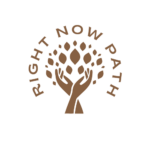In today’s fast-paced world, achieving personal and professional goals can often feel like navigating a labyrinth. This is where a goal setting workshop can be a game-changer. Designed to provide clarity and actionable strategies, these workshops empower participants to set realistic, achievable goals. Whether you’re looking to advance in your career, improve personal skills, or even change your lifestyle, understanding the art of goal setting is the first crucial step.
Goal Setting Workshop
 Goal setting workshops are crucial in equipping individuals with the tools they need to set and achieve meaningful objectives. They serve as a catalyst for both personal and professional development.
Goal setting workshops are crucial in equipping individuals with the tools they need to set and achieve meaningful objectives. They serve as a catalyst for both personal and professional development.
Setting goals is essential as it provides a clear direction and focus, which is instrumental in guiding daily decisions and tracking progress. Specific goals enhance motivation, helping individuals to take control of their life’s direction. Goals act as a roadmap, making it easier to overcome obstacles and make decisions that pave the way to desired results. The process of setting goals allows individuals to identify what they truly want to accomplish, aligning their efforts with their vision.
Benefits of Structured Goal Planning
 Structured goal planning in workshops offers numerous advantages. It ensures that goals are realistic and attainable, which reduces frustration and increases the likelihood of success. Participants find that structured planning helps in clearly defining their goals, which simplifies the process of achieving them. Here are some key benefits:
Structured goal planning in workshops offers numerous advantages. It ensures that goals are realistic and attainable, which reduces frustration and increases the likelihood of success. Participants find that structured planning helps in clearly defining their goals, which simplifies the process of achieving them. Here are some key benefits:
- Increased Efficiency: Clear goals provide a measure of where individuals are and what they need to do to achieve their aspirations.
- Enhanced Time Management: By defining objectives, participants can prioritize their tasks better, leading to more effective time management.
- Boosted Self-Confidence: Achieving set goals boosts individuals’ self-confidence and self-efficacy.
- Improved Motivation: Clear, achievable goals provide continuous motivation and help individuals to persist in the face of challenges.
By understanding these benefits, participants can fully leverage the tools provided in goal setting workshops to enhance their personal and professional lives.
What Is a Goal Setting Workshop?
A goal setting workshop is a formal session where participants learn to define and achieve their objectives effectively. These workshops facilitate a structured environment to plan and strategize personal and professional goals.
Overview of a Typical Workshop
A typical goal setting workshop comprises multiple interactive components designed to assist attendees in crafting a clearer path toward their ambitions. The workshop starts with an introduction to goal-setting principles, stressing the importance of SMART goals—those which are Specific, Measurable, Achievable, Relevant, and Time-bound. Participants engage in activities that promote self-assessment, allowing them to identify their current position in relation to their future aspirations. The facilitator guides attendees through a series of exercises that help in breaking down long-term goals into manageable steps. Group discussions and personal reflection periods are vital, fostering an environment where participants can share experiences and gain insights from others’ journeys.
Key Components
 The success of a goal setting mal workshop hinges on several key components:
The success of a goal setting mal workshop hinges on several key components:
- Expert Facilitation: Trained facilitators lead the workshop, providing expertise and ensuring that the session remains focused and productive. They facilitate discussions, offer insights, and help clarify doubts, if any arise during the process.
- Interactive Exercises: These are crucial for keeping participants engaged while also aiding in the practical application of goal setting theories. Exercises may include role-playing scenarios, goal mapping, and peer analysis.
- Goal Clarification Tools: Workshops utilize various tools like worksheets, digital apps, or whiteboards to help attendees visualize and articulate their goals more effectively.
- Action Planning: Each participant leaves with a concrete plan of action. This plan outlines the steps they need to take post-workshop to move towards their set goals.
- Follow-up Support: Many workshops offer follow-up resources such as continued access to coaching or digital support groups. These resources help maintain momentum and accountability, ensuring that goals do not lose priority.
By structuring these components effectively, a goal setting workshop can transform participants’ approach to achieving targets, enhancing both their personal and professional trajectories.

